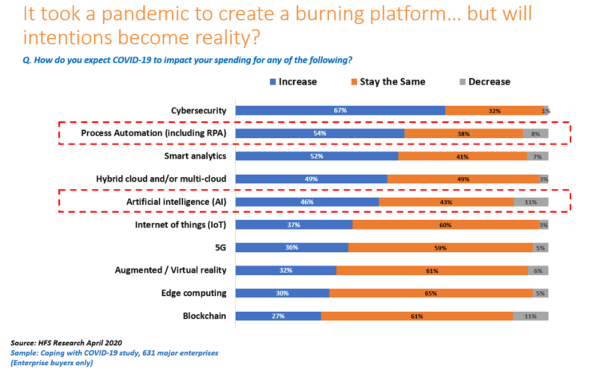
mcmurryjulie / Pixabay
Finding growth in times like these means transforming your business, and more importantly, your mindset. This article shows you how.
A great deal has already been written about the “new normal” of the post-COVID world – including on this blog – and how to survive this downturn.
But with global economies reeling and no relief on the horizon, it’s becoming increasingly clear that survival isn’t enough. To lead your business through this extraordinary crisis, you need something more – a growth mindset.
Finding growth – or even the possibility of growth – can seem impossible in our present times. Every indicator around you is telling you to burrow in, conserve capital, and hold off on impactful decision-making.
But this growth-oriented outlook is precisely what you need to thrive in the new normal. Where competitors dawdle on decisions, you can move fast, embrace change, and come up with offerings that your customers want.
Below, I’ll share a nine point prescription to shift from “survival” to “growth” mindset.
Prioritize Revenue
While we mostly talk about the agency business on this blog, it’s clear by now that almost no industry has been completely immune to the COVID crisis. Consumer spending has slowed and revenues have dropped across the board, especially in people-focused industries (live events, travel, media, etc.).
Bringing revenue back to normal levels should be the top priority for any business leader. Revenue is your moat and your shield – crucial cash flow that enables all the reforms necessary for the post-COVID world.
To this effect, there are a few measures you can adopt:
1. Embrace a startup mindset
Much has been made of the “startup mindset” – scrappiness, brisk decision making, and rapid action – but now it’s more important than ever. The usual can’t thrive in the new normal. If you prefer analysis over action, you’ll find that your revenues never recover to pre-COVID levels, if at all.
The key to embracing the startup mindset is to establish a faster cadence of action across the business. Everything, from executive-level decisions to daily meetings must move at a faster pace. Cut meeting time from an hour to 20 minutes. Shift from monthly to weekly CEO reviews. Move from weekly to daily check-ins.
You’ll find that moving fast forces you to embrace change – even if you’re not 100% ready for it.
2. Go all-in on digital
Digital consumption is at an all-time high thanks to country-spanning lockdowns across the world. Even if these highs aren’t sustainable, it’s clear to even a casual observer that the future is digital.
As cliche as it sounds, the only way to thrive in the post-COVID world is to embrace the digital.
For instance, a number of businesses have embraced remote sales during the lockdown. This is a digital innovation that requires a substantial change in behavior. Yet, as McKinsey reports, a substantial minority – 27% – find that a remote-only sales model is as effective as traditional sales.
For the agency business, digital is even more important as more and more advertising dollars shift online. Global digital ad spending outgrew offline spending in 2019, but you can expect this pace of change to be even faster in the post-COVID world.

3. Give customers what they want
The customer is always king, but in the post-COVID world, the customer must be the all-supreme, ever-reigning emperor. Every single aspect of your product portfolio has to be oriented 100% around your customers and what they want.
Case in point: every year, more and more B2B customers demand self-service sales channels. Yet many B2Bs won’t even let a prospective customer schedule a demo online, let alone buy an entire catalog of products.
Customer demand for self-service sales has been steadily increasing every year
Comb through your product portfolio, features, and sales approach. How much of it is customer-centric? How much of it is superfluous and non-revenue generating?
Growth in the normal means discarding the latter as quickly as possible.
4. Pursue new revenue opportunities before the recovery
The recovery will happen eventually. But if you wait until then to make your move, you might find that your competitors have already clawed away a lion’s share of the market.
Whatever rapid, experimental approaches you need to take to shore up revenues must happen now, not later. Everything should be on the table – pursuing loyal customers with additional offers, chasing nontraditional partnerships, adopting new sales channels, etc.
Your goal should be to at least dominate the customer’s mindshare when the recovery finally happens.
Change How You Work
The lockdown ushered in entirely new ways of working for countless businesses. In other cases, it cemented and accelerated burgeoning trends. Companies that had never worked remotely found themselves holed up in Zoom calls for hours. Others extended their remote work policies to everyone – forever.
While offices will eventually open and we might go back to business as usual, now is a good time to ask: Do we really need to?
As many businesses discovered in the last few months, their operations weren’t as robust as they thought. Poor communication, outdated infrastructure, and crumbling supply chains hamper their growth.
To find new opportunities, thus, there are a few practices you need to consider:
1. Create a Plan B for your operations
As the disruption of the global supply chain in the early half of the lockdown showed, it’s crucial to have a Plan B for your operations. Having multiple vendors, a stockpile of products, and ready-to-deploy digital resources is essential in an increasingly fragile world.
Your goal should be to build a more resilient business, one that can take massive disruptions in its stride. This includes:
- Diversifying vendors and revenue streams
- Investing in digital resources and training before a crisis
- Stockpiling supplies
- Building a roster of ready-to-deploy freelancers (crucial for service businesses)
2. Automate and streamline
If nothing else, the COVID crisis has shown businesses how many inefficiencies exist in their operations. Manual processes and superfluous practices are rife, simply because of organizational inertia. Businesses start doing things a certain way, then stick to it even when better alternatives exist.
In the post-COVID world, your priority should be to streamline and automate. The leaner you can run your ship, the faster you can pivot in response to an emergency. The lower cash burn is, of course, an added benefit.
I’ll leave you to decide if fancier (and often unreliable) forms of automation such as Artificial Intelligence (AI) are right for your business. But at the very least, you shouldn’t have to send reminders and notifications manually – let your operations software do it for you.
Fortunately, the pandemic has already triggered this drive towards automation. As one survey points out, a majority of businesses are increasing their investments in automation.

3. Embrace the new way of working
Remember when I talked about embracing a startup mentality?
While a part of that is “moving fast”, another is using technology to work more effectively.
Far too many businesses are still tied to the old ways of working. Email over Slack. Phone calls over Skype. Whiteboard meetings over collaboration tools.
The one thing these old ways of working have in common is speed. Or rather, the lack of it. You can’t make decisions quickly if you have to navigate through a dozen email threads. Your collaboration will suffer if you have to jump on phone calls just to figure out what your team members are doing.
It’s time to go all-in on technology and work like a 21st century business. Some tools can make your communication and collaboration faster, easier, and even cheaper. Embrace this change – the future of your business depends on it.
Change Who You Are
“Kill your darlings”, Stephen King famously wrote in On Writing. And while that advice may have been for budding writers, it’s equally applicable to business owners, managers, and entrepreneurs.
What are the “darlings” of your business? What things do you hold so close to your heart that you can’t let go of them?
For most, it’s a mix of beliefs, values, and culture. Some of these might even be essential to the survival of the business – the raison d’etre for its existence.
But in some cases, these beliefs might be holding you back. Your crisis response is stymied by your organization’s culture and values. You can adopt all the new tools and processes, but if your underlying beliefs remain the same, you’re not going to see much progress.
So the final step is to follow King’s advice – “kill your darlings”. Question your beliefs and values. Ask: which of these are essential for the business? Which of these have been tacked on? What can we discard without destroying our organizational DNA?
This is obviously a tough task (if it isn’t, you’re not digging deep enough), but it is essential to grow in the present times. The beliefs you hold dear might have gotten you this far, but they won’t necessarily get you beyond this.
Beyond “values and beliefs”, there are a few core issues you need to tackle as well:
1. How you run your business
I’m not talking about the operational side of things; I’m talking about the ethos that bind your culture.
How do you run your business? What shared identity do your employees associate with? What words would you use to describe your business? Are you sharing and nurturing? Or do you treat it just like a business? Do you move fast? Or do you take time to make decisions?
Dissonance between your actions and your beliefs can cause morale to hurt and the overall culture to stagnate. If you believe you are a loyal, nurturing business, but fired people at the first lockdown, your employees won’t buy your story anymore.
A clear sense of identity will do you a world of good in a crisis. Especially if it comes to a point where you feel you have to change it.
2. How you grow your business
There are countless paths to reaching growth. Some are slow and structured. Others are riskier but more rewarding.
In the post-COVID world, it helps to ask yourself: what growth opportunities are you comfortable pursuing? Is there something that is out of bounds for you? If yes, why? How strong is this belief?
At a time when old playbooks fall short, questioning core beliefs is crucial for unlocking future growth. What you might have ignored earlier because it was beyond your capabilities might just be the panacea to your growth problems.
Over to You
The current crisis has been kind to few businesses. Emerging out of it requires a shift from a survival to a growth mindset. And adopting this growth mindset means questioning core beliefs and processes.
It’s not easy, but it’s necessary – now more than ever.
Speaking of necessity, one way to truly unlock your business’ potential is to switch to a better, all-around management system like Workamajig. Workamajig brings your entire business under one roof, giving you unprecedented insight over your operations.
Click the link below to get a free demo today.
Business & Finance Articles on Business 2 Community
(59)